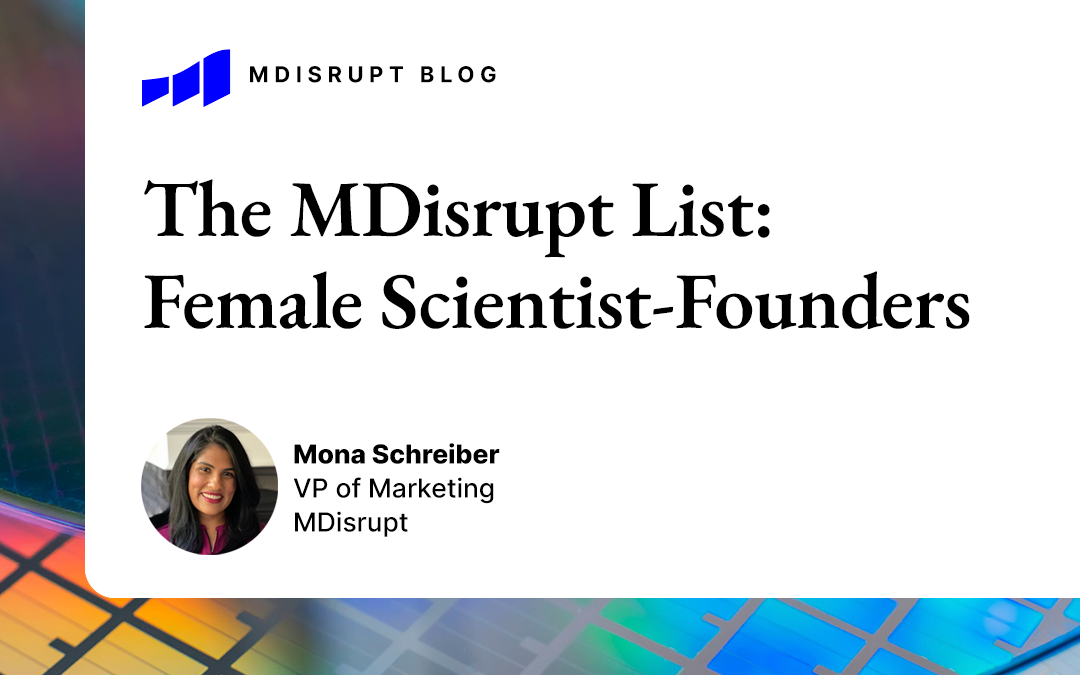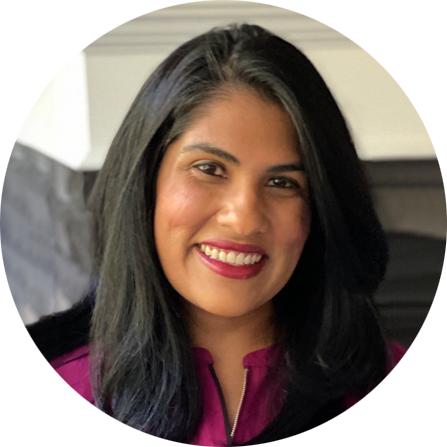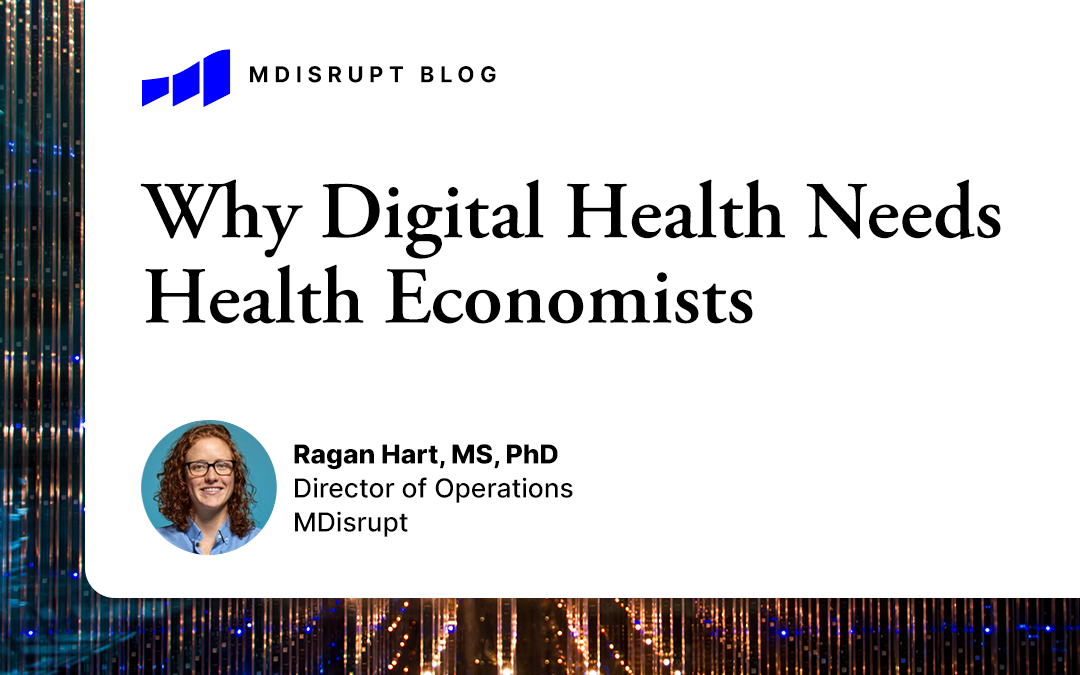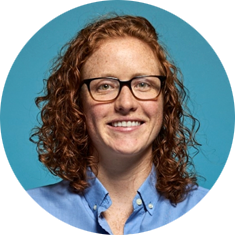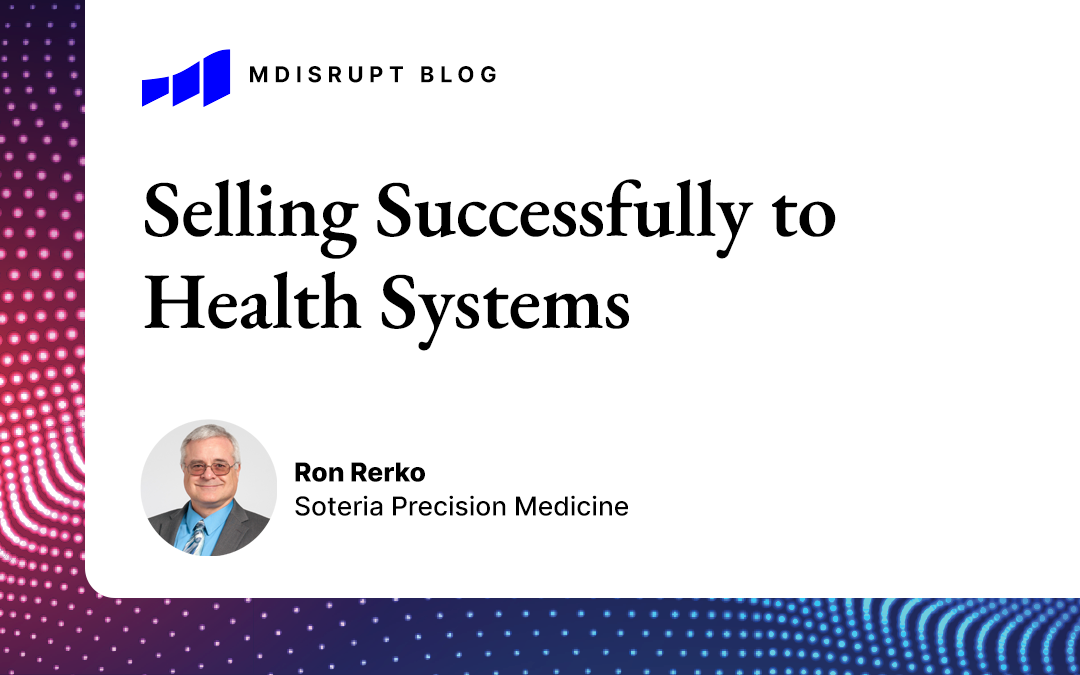
How can digital health innovators successfully sell to health systems?

Meet Ron Rerko, head of clinical solutions at Soteria Precision Medicine Foundation and executive director of genomics at Family Care Path.

With over 20 years of experience in cancer research—and 13 years at the Cleveland Clinic as director of genomics in the Genomic Medicine Institute—Ron has developed and implemented programs in medical genetics, genomic medicine, pharmacogenomics, and telehealth, as well as extensive business development efforts.
Digital health startups don’t always take the optimal approach when it comes to engaging health systems. Ron shares his advice for best practices with the MDisrupt community.
Healthcare today
MDisrupt: Can you describe the state of the healthcare system?
Ron Rerko: Health systems of today mostly practice sick care, not well care. Within this system, costs are rising faster than annual incomes and this is not sustainable. The cost of insurance premiums is outpacing the ability to pay. Family costs have increased by 180% since 2000. And 45% of people in the US say they would have difficulty paying an unexpected $500 medical bill. We have a tenuous, fragile system that desperately needs help and innovation. And, unfortunately, the cost of care does not always equate with good care. The healthcare ecosystem, which is like a cottage industry of a lot of different parts, is trying to figure out what the future holds given immense financial constraints, worsened by the COVID-19 pandemic, and multiple disruptors moving into the market.
How to pitch to health systems
MDisrupt: How should digital health entrepreneurs pitch their products to health system executives?
Ron Rerko: Pitch a product that opens up new revenue sources and/or saves money, and that provides positive outcomes for their patients. Hospital systems are dealing with millions of dollars of losses, especially due to the pandemic, and are up against fundamental performance measure changes with implementation of insurance reimbursement in a value-based care model.
The first thing you have to do is understand your business champion—an executive, physician, nurse, or researcher—and know what’s important to them and how you can help solve their problems. Leave the sales mentality at home. Be their partner and understand their pain points and show how you’re going to help them instead of just selling to them.
Avoid these rookie mistakes
MDisrupt: What are mistakes digital health companies make in selling to health systems?
Ron Rerko: Let me focus on things you should not do and then we’ll figure out how to craft the best value prop. The thing you should not do is go into systems cold. You’ve got to understand the system and the culture. You need to understand the type of individuals you are talking to and the challenges they are dealing with.
They have jobs that they’re trying to do, stresses that they have to deal with. So you need to connect with them as a person. It is best to have a “Sherpa” or someone along with you to navigate the system, because if you try to go in cold it usually doesn’t work.
And one thing to remember is, you cannot make a strategic mistake. Once you go into a system and make a blunder, that usually gets around. Hospitals have very long term memories about companies and people. So if you make a mistake or two in a system, you probably won’t even be able to come back for a while. You want to educate yourself and make sure that you’re approaching the opportunity the best way possible.
Also hospitals are ecosystems, not single entity units. You’ve got to figure out the best way to enter the system and what’s the value prop for that specific entity.
The future of genomics in healthcare
MDisrupt: What will it take for genomics to be standard practice within the healthcare ecosystem?
Ron Rerko: The standard practice of genomics is not going to be an “if”—it’s a “when.” It’s already in practice in a lot of places. Cleveland Clinic, for example, has a very advanced genomic medicine institute. Genomics is used in cancer treatment, pharmacogenomics, hereditary cancer identification, cardiovascular care, and non-invasive prenatal testing.
The problem is that it’s very complicated and a rapidly moving field. A lot of this information has really come out only in the last decade or so. Physicians who were in medical school even just 10 years ago may not have had a lot of this information. The generation of new information and the integration of this into clinical care are moving at a rapid rate.
We’re finding new and informative things every day and using sequencing to look at your DNA, to determine what drugs you metabolize, what foods may be good for you, and what diseases you are at risk for. Physicians are expected to see more patients, incorporate more info into care and at a faster rate. They don’t have a lot of time to incorporate this complex information into their clinical workflow—for example, how to understand the reports and make sure it’s the best thing for their patients. Physicians are just struggling to keep up with the demands of their normal practices, let alone start to integrate these advanced products.
Soteria Precision Medicine Foundation is utilizing genomic medicine to help people dealing with cancer and acting as an advocate for the patient and supporting them with their oncologist. It is a slow process because all the pieces need to integrate into a clinical workflow. It is happening, but will be difficult continuously integrating advancements over the next couple of years.
Why listening is essential
MDisrupt: What advice would you give digital health innovators as they are developing products and pitching to health systems?
Ron Rerko: There have been times during a meeting where I’ve talked for two minutes and thought, “This is going to work much better if I listen and learn about their problems.” I’ve had to pivot and understand more about what they are going through, what they need help with, and then understand how my offering could or could not benefit them. We end up developing a rapport and a connection because we’ve listened to each other.
One of the things I would tell a founder of a company is, don’t bring your ego into the room. Just leave it at the door and say, “I’m here to help and I’m trying to work with you.” And another piece of advice is not being afraid to fail. If something didn’t work, I’ll step back and say, “Why didn’t it work and how can I adjust in the future?” I’m even appreciative when a potential customer will tell me why it’s not working and what they saw, because that allows me to learn more and make my pitches better. It’s being able to accept those criticisms. That’s part of the process.
At MDisrupt we believe the most impactful health products should make it to market quickly. We connect digital health innovators to the healthcare industry experts and scientists they need to responsibly accelerate product development, commercialization, adoption, and scale.
Our expert consultants span the healthcare continuum and can assist with all stages of health product development: This includes regulatory, clinical studies and evidence generation, payor strategies, commercialization, and channel strategies. If you are building a health product, MDisrupt can help. Talk to us.

